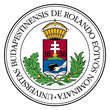AZ EGYETEMI KÖNYVTÁR ÉVKÖNYVEI 7-8. (Budapest, 1997)
Szögi László: Előszó
enormous changes. The collection, founded in 1561, represents one of the important institutions of Hungarian national cultural heritage. We protect and safeguard internationally considered valuables here. Its Archives of manuscripts and rarities, its collection of old books and its incunabula are unparalleled in Hungary and our obligation as the Library's present collaborators is to keep these considerable valuables to pursue the traditional work of librarian treatment. At the same time we should not forget that an up-to-date University library cannot operate without our days' integrated library system; it cannot work without the application of modern technics. The Eötvös Loránd University of Sciences is not only the oldest, but also the biggest University of Hungary in its present form. Consequently, its library system is the most disintegrated one in the country. There are nearly 120 different libraries operating all over the faculties and institutions and their stocks are larger than 3,6 million volumes. This is one of the country's biggest bookcollections, but it is poorly discovered and its utilization is far backwarded. The University Library safeguards 1,6 million volumes but even there the application of modern informatics systems has begun with some lateness and our aim in the long run is to develop and sustain this system as an integrated one which covers the whole University. It is generally known that the library system of the University should be reformed. We must cut the number of libraries in order to introduce a higher level service in the remaining ones.Our goal is not the centralizaton, we only want rational collaboration, uniform acquisition principles, avoiding unnecessary expenditure and overlapping, a better exploitation of existing librarian capacities and accelerate the access to information. The Council of the university adopted in these terms the conception of library development and also the new regulations of our University Library network. We must face the fact that during the past 25 years the reading practices have basically changed and the expectations of researchers are already different even towards the University Library which is collecting the works of classical of humanities. Not only the university professors and researchers but also the students aspire to obtain information in less time. There are less and less readers who would spend days, weeks or months in a library researching his chosen subject. The students, too would like to borrow every book instead of reading it in the library. There is an increasing claim to have the possibilities of copying and getting the information by the computer network which is gradually taking its place even in human sciences. Many people are living this process as a deception from a traditional librarian point of view and they think that the task of the great scientific libraries is to guarantee the highest possible level in the traditional furnishing. Against their opinion we think that it is impossible to develop the University Library to a direction different from the changes of our times and from the reading practices of our readers. We must raise two kinds of 19
